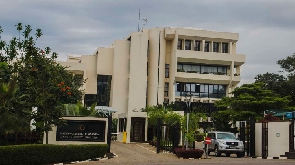The National Bank of Rwanda (NBR), the country's central bank, on Thursday raised its policy rate by 50 basis points, an effort to contain inflationary pressures and protect economic growth.
The move by the National Bank of Rwanda (NBR) means the policy rate will rise to 7.5 percent, having initially sustained the rate at 7 percent despite pressure from the IMF to further tighten monetary policy.
In May, the Rwandan central bank had decided to maintain keep its policy rate unchanged at 7 percent.
Now, the Bank has been forced to tighten monetary further to cool inflationary pressures by the end of the year.
Announcing the decision on Thursday, National Bank of Rwanda Governor John Rwangombwa said no further increments are expected as inflation is expected to be contained to single digits by next year.
“This decline is expected for all main components: core, energy and fresh food inflation. We don’t see this rate increasing further, and we remain optimistic that inflation further reduces to our benchmark by next year…” Rwangombwa said announcing the rate-setting - committee’s decision.
Headline inflation is expected to fall within the band (below 8 per cent) - an average of 7.6 percent in the fourth quarter by the end of the year to around 5 percent next year, according to the Central Bank.
Rwanda's Consumer Price Index (CPI), the main gauge of inflation, increased by 11.9 percent year on year in July 2023 down from 13.7 percent in June 2023.
Headline inflation decreased to 15.2 percent in the second quarter against 20.2 percent in the first quarter.
Fresh food inflation remains high though it decreased to 40.4 percent down from 48.8 percent as the country grapples with poor agricultural performance due to recent flooding and landslides destroyed planted crops, and arable land was lost.
Rwangombwa said the bank is cautiously optimistic about the positive outlook as the economy remains vulnerable to external shocks.
For instance, while a reduction in international prices has reduced imported inflation, the prolonged war in Ukraine and geopolitical tensions could influence international commodity prices to go upwards. This could fuel prices upwards.
Additionally, unpredictable events linked to climate change might affect agricultural production.
Figures by the Central Bank show inflationary pressures reached a peak in November last year with headline inflation at 21.7 percent but started easing to 17.8 percent in April 2023.
Africa Business News of Thursday, 17 August 2023
Source: theeastafrican.co.ke













